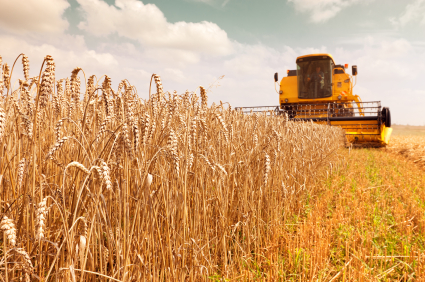Comparing the maintenance of heavy equipment in rural and urban applications

Working in a rural environment is pretty different from working in an urban environment. If you use heavy equipment in a city then chances are you’re working indoors within the confines of a factory or within a closed industrial space. Conversely, in rural areas your equipment will be exposed to the rigours of the natural world and its often harsh conditions. You might be using similar equipment in each case then, but chances are a number of adaptions will have to be made to choices of components according to the variables which make rural and urban environments different. This article will look at the different challenges the rural and urban worker faces and how they can best adapt their machinery to each distinct environment.
Equipment in agriculture
Farming equipment is subject to harsh agricultural environments where the chance of contaminants entering equipment and affecting components is high. If you think about the amount of dust, dirt and grit around on a farm as well as the heavy duty work a tractor or bailer has to do you can imagine how sturdy and robust farming machinery needs to be. Couple this with frequent exposure to various weather conditions with the chance of rusting, freezing or over-heating depending on the time of year and you start to understand the complexity of maintaining farm equipment.
Working out in the fields also means that a different approach to repairs and maintenance is necessary. You might often find yourself making repairs out in the field with limited equipment available to help.
One difficulty in maintaining farmer equipment is protecting the smaller, more vulnerable parts of machinery. Belts, pulleys, chain, sprockets and bearings can all be impacted significantly by difficult working environments in all types of equipment from combine harvesters to pruning crushers.
Budget bearings versus new bearing designs
Since ball bearings are so susceptible to reduced life expectancy because of contamination in rural environments a lot of farmers choose to use budget bearings and replace them regularly. Rather than spend extra on bearings which may or may not last longer they accept that bearing life span on the farm is very likely to be reduced and opt for frequent replacement.
There are new ranges of SKF ball bearings however which are specially designed to face the potential obstacles presented by the farm and increasingly farmers are opting for these. One big factor in the lifespan of the bearing is lubrication, and SKF have manufactured bearings which aim to minimise or completely eliminate the need for disassembly and re-lubrication of components.
Equipment in urban environments
Urban environments can be regulated more easily than agricultural environments and in some ways this means an urban environment is less likely to reduce the lifespan of machinery in an unpredictable way. Put simply, within the confines of a factory you can have greater control of temperature, humidity and potential contaminants thereby increasing the lifespan of bearings and other components in machinery.
In some applications however, urban machinery is subject to similarly harsh and dirty environments as rural machinery. A recycling plant for example can be a very dirty environment, so machinery in these plants will require similar accommodation as farming equipment. Often the same kinds of ball bearings used in farming equipment will be necessary in a recycling plant.
